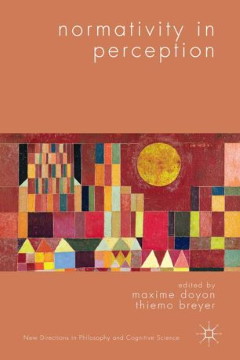Buch | Kapitel
Normality and normativity in experience
pp. 128-139
Abstrakt
At first it seems odd to speak of something like normativity already within the realm of perceptual experience. Normativity obviously seems to be a concept of higher order that refers to the field of ethics, namely to the question of how we might define a good life or society and what norms should be implemented to realize it. But if one traces the historic-cultural roots of the term, one can find that the term norm stands for an angular measure or guideline in the practical context of ancient architecture (cf. Hoffmann, 1984; Kudlien, 1984). Here a norm is an arbitrary determination or fixation, for example a foot or a yard, which is then used as a standard measure to unify construction works. According to its history, a norm seems to be something that develops out of practical motivations to facilitate cooperation and intersubjective communication.
Publication details
Published in:
Doyon Maxime, Breyer Thiemo (2015) Normativity in perception. Dordrecht, Springer.
Seiten: 128-139
Referenz:
Wehrle Maren (2015) „Normality and normativity in experience“, In: M. Doyon & T. Breyer (eds.), Normativity in perception, Dordrecht, Springer, 128–139.




